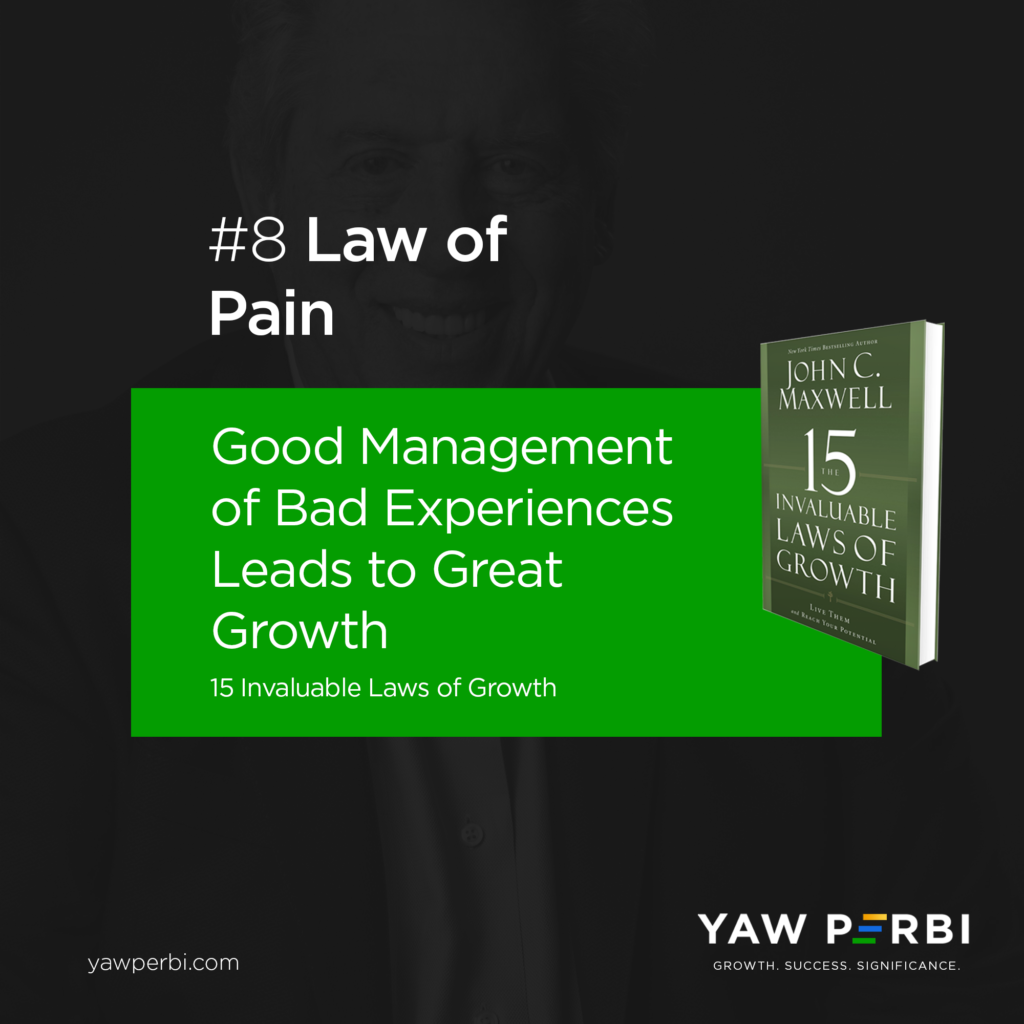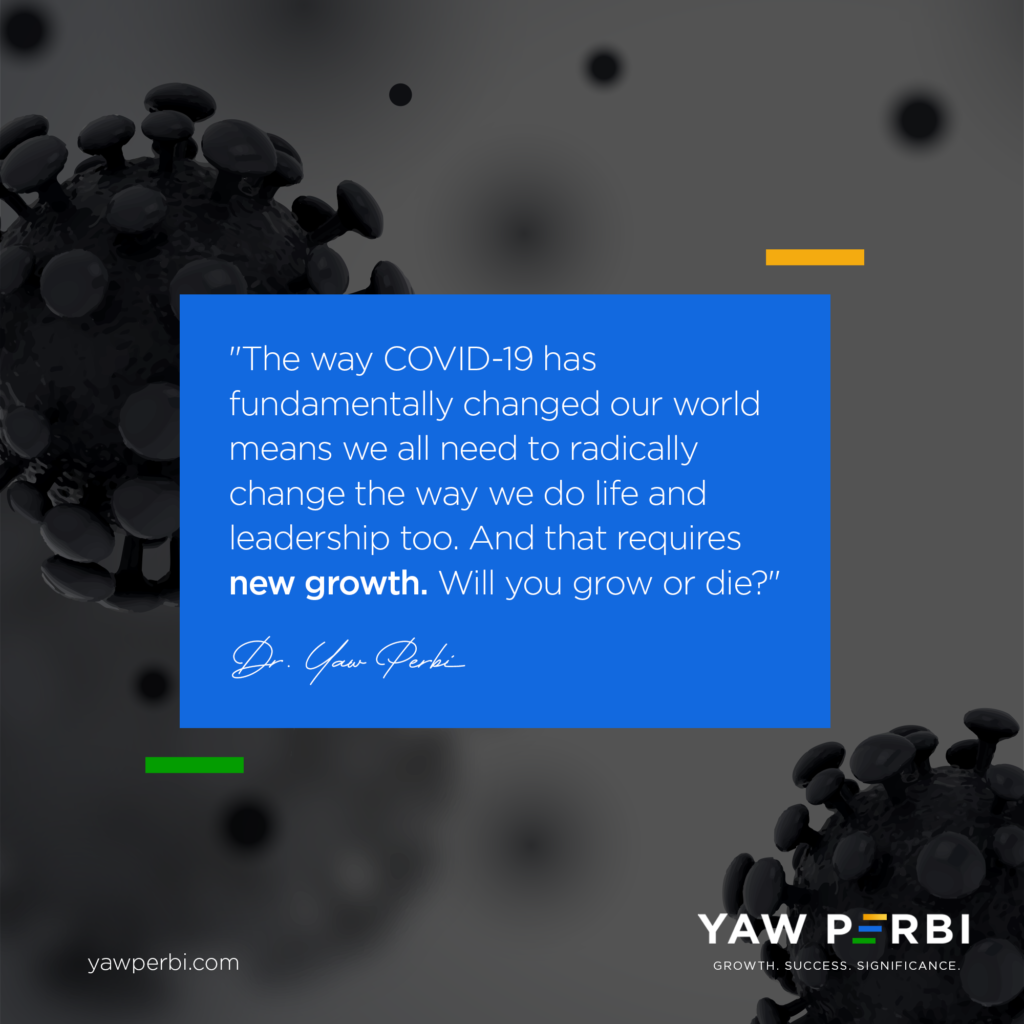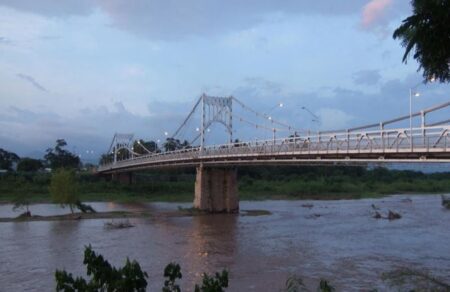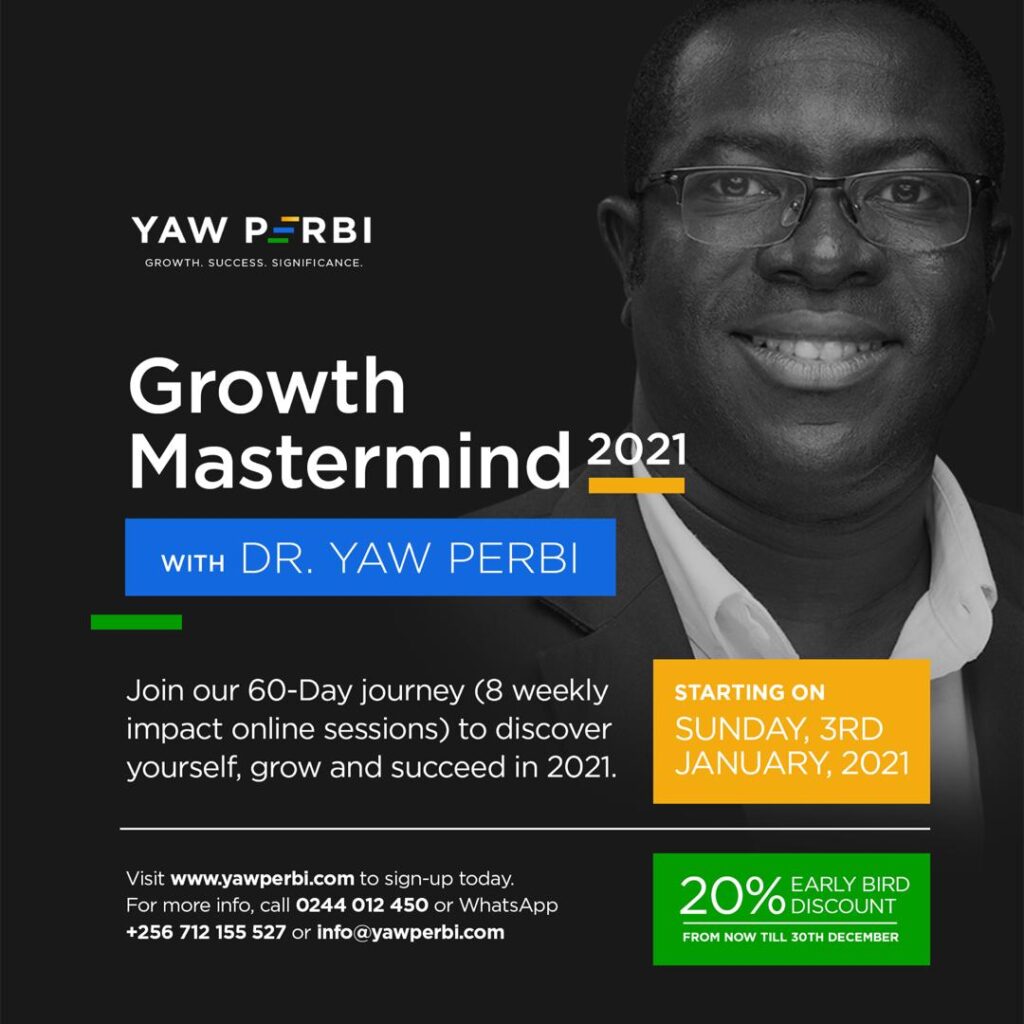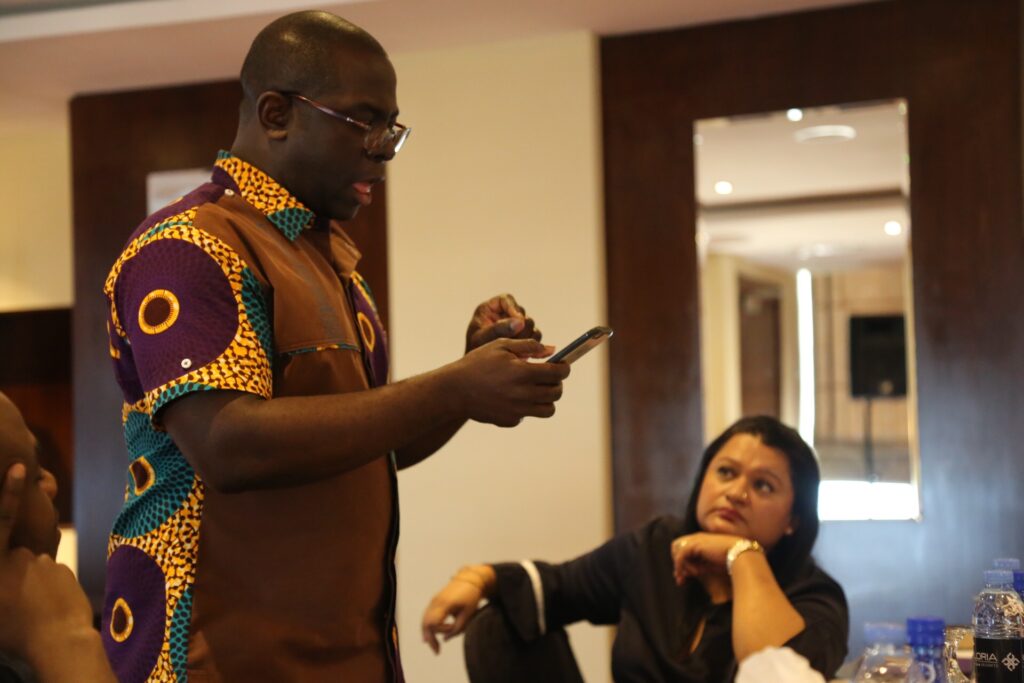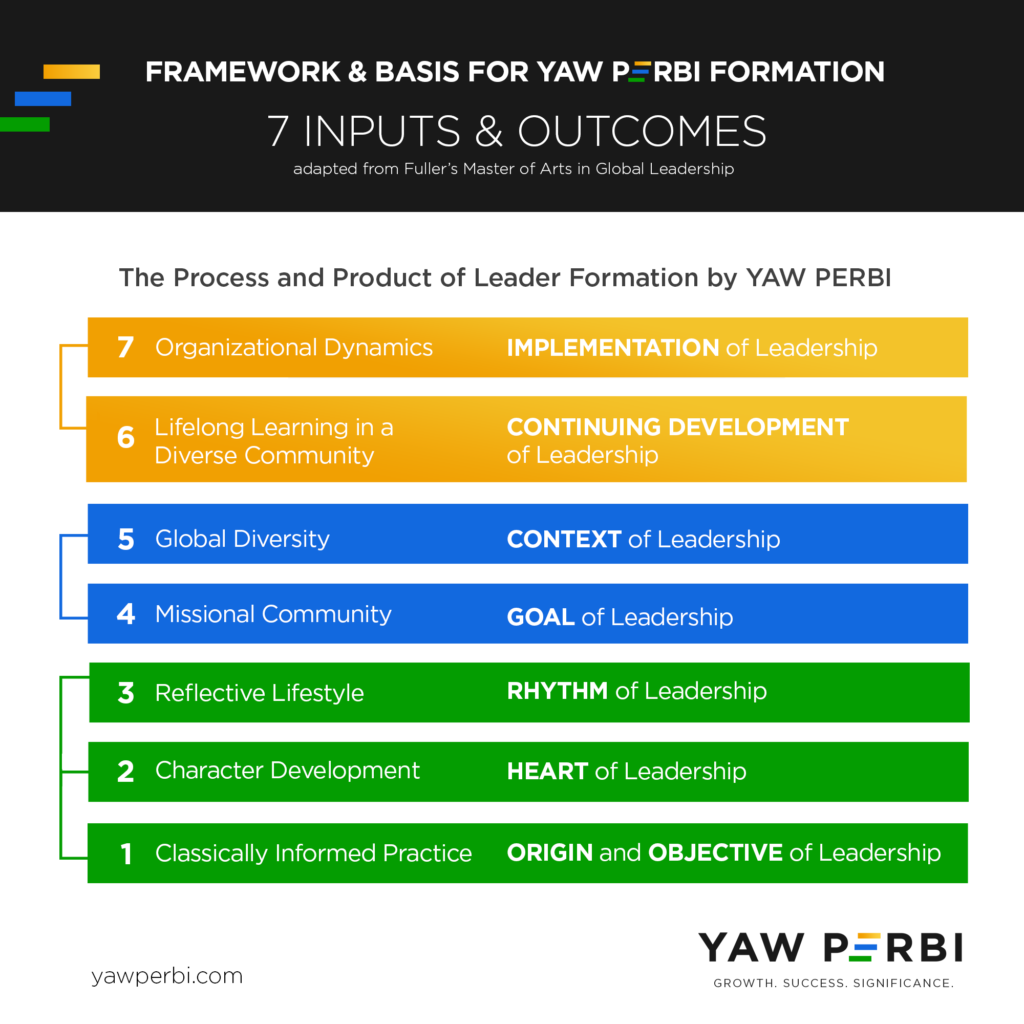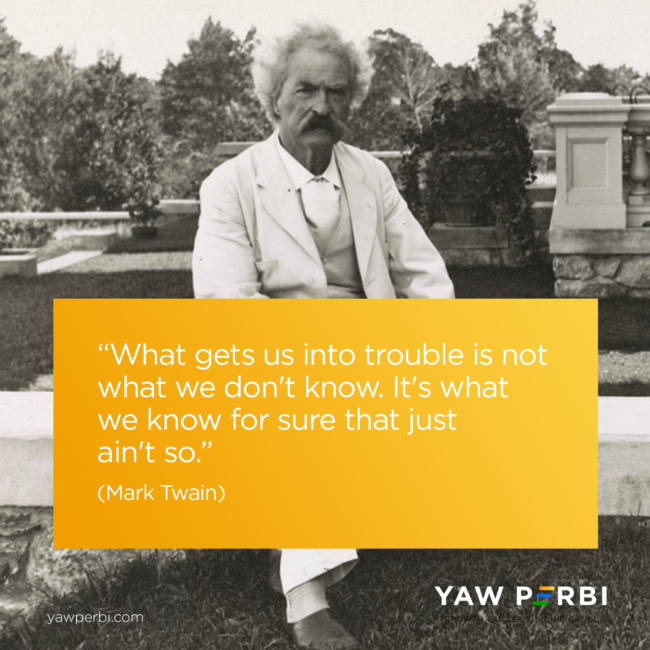
A Way to Prevent Heartbreak: Clarify Expectations
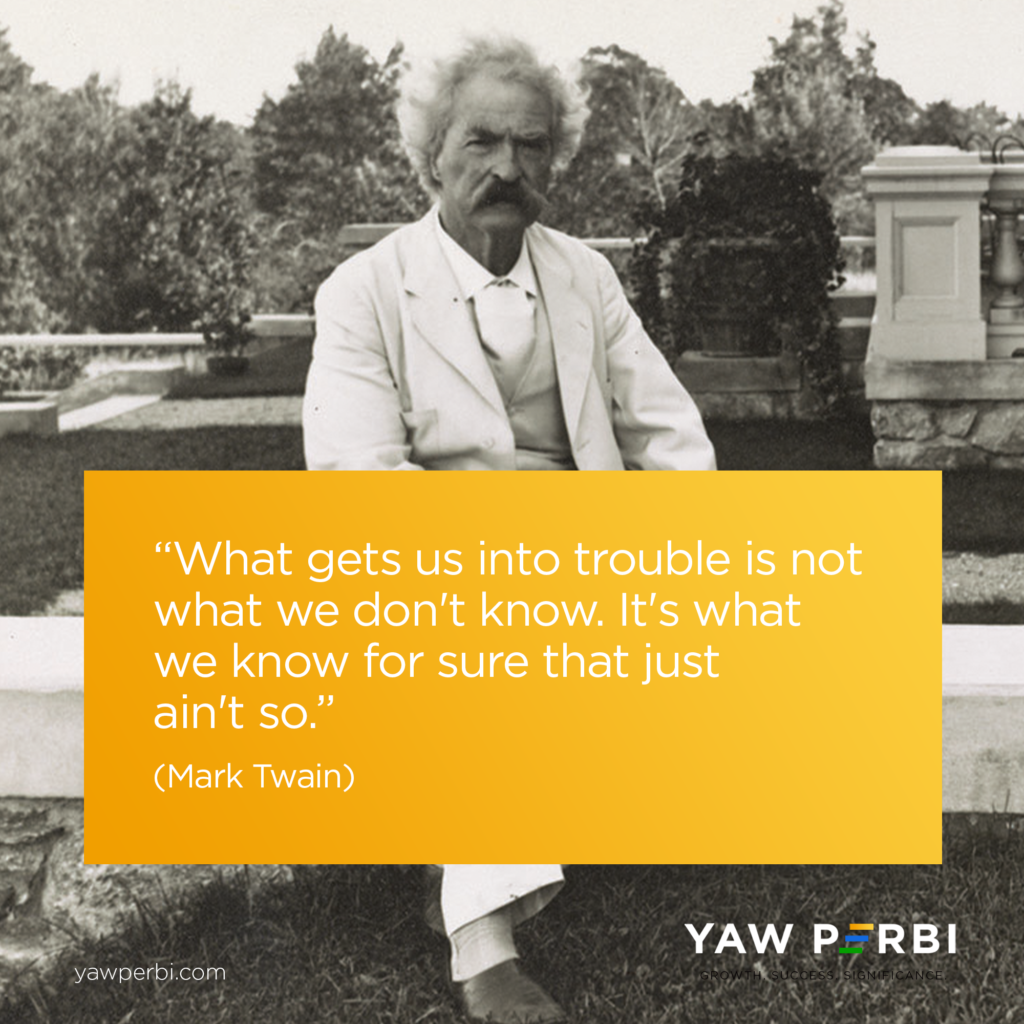
While what you don’t know may kill you; what you think you know but really don’t may kill you faster!
I have wanted to talk about this for months–how to prevent unnecessary hurt from unmet expectations–but last week an incident happened with one of my associates that really catalyzed me to share this urgently. So let’s talk about unmet expectations.
Whether it’s between spouses, parent and child, boss and workers or even among co-workers, family folk and church members, this is quite a common occurrence. This is particularly so African, Chinese, Japanese and Korean cultures that employ indirect communication. If you’re like me, you’ve probably been hurt before by unmet expectations. In fact, sometimes we don’t even realize we had an expectation until it was not met!
Mark Twain once said, “What gets us into trouble is not what we don’t know. It’s what we know for sure that just ain’t so.” We tend to have expectations that are unconscious, unrealistic, unspoken and unagreed upon. Let me share how you can flip these four things around and protect your heart against heartbreaks from unmet expectations. I owe this life-saving lesson from my New Yorkan mentors, Pete and Geri Scazzero.s
THE MILLION DOLLAR QUESTION
How do you know your expectations are valid or not? As hard-to-take as this may seem, when the expectation is unconscious it is invalid. In fact, if even we don’t even know we have them until we are disappointed how on earth is the other person supposed to know and meet it? When it is unrealistic it is invalid as well. Even if it is reasonable and we are conscious of it but it has not been articulated, it is still invalid. The common lame excuse we tend to give is, “Oh, but they should know?!”
In the event that our expectations meet all the above three criteria–conscious, realistic, spoken–but the other party has not agreed to them, they are still invalid. While this may seem very Western, I have learnt as an African-Canadian that it is never wise to assume agreement!
Of course, important caveats include marriage (where the vows already spoken have created certain clear expectations like fidelity), parent-child relationships (expectation of chores) and employer-employee dynamics where expectations have been clearly laid out in contracts and policy and supposedly read and accented to. Even in these relationships with broad-stroke expectations, situations occur that demand clarifying expectations further.
WHAT TO DO TO FORESTALL HEARTBREAKS
To prevent heartbreaks from unmet expectations, ensure your expectations are:
(1) Conscious: I am aware of my expectation.
(2) Realistic: I have evidence to support that the expectation is reasonable in the sense that the other is able and willing.
(3) Spoken: I have expressed the expectation clearly.
(4) Agreed Upon: The other person has agreed to the expectation by saying “yes.”
I would highly recommend you take the Scazzero’s Emotionally Healthy Relationships course for a full meal and good skill-building in this area they call Stop Mind Reading and Clarifying Expectations.
WHAT TO DO WHEN HURT HAPPENS
In the event that hurt still happens from unmet expectations, valid or not, REFRAMING the painful experience is everything. As John Maxwell renders it in the Law of Pain, “good management of bad experiences can lead to growth.” Reframe the painful experience as follows (modified from a Maxwell process):
a) Define the problem –> The painful situation I need to process right now is…
b) Understand your emotion –> My feelings about this are…
c) Articulate the lesson –> My lessons in is this are…
d) Identify a desired change –> The changes I want to effect are…
e) Brainstorm numerous pathways –> The ways out are…
f) Receive others’ input –> What I’m learning from others is…
g) Implement a course of action –> My course of action is 1. Embrace the reality of pain 2. Learn my lesson(s) 3. Share my lessons 4. Change a. ______ b. ______ c. ______ d. _____.
CONCLUSION
You know what they say happens when you assume: you make an ass of u and me. An expectation is only valid when it is mutually agreed upon. Let’s do less heart damage by providing and demanding clear expectations of others. Let’s ensure in all our relationships that our expectations are conscious, realistic, articulated and agreed upon. And when things fall through the cracks and we feel the sting of pain from unmet expectations, let’s reframe the experience well so we can still grow and flourish.
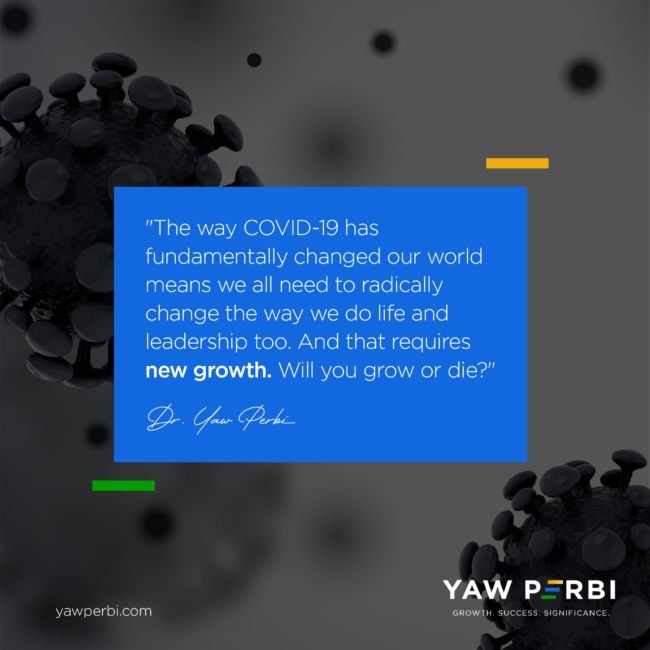
Festival of Nine Lessons & Corona
“The novel coronavirus is not just something for leaders to ”get through” for a few days or weeks. Instead, we need to treat Covid-19 as an economic and cultural blizzard, winter, and beginning of a “little ice age”—a once-in-a-lifetime change that is likely to affect our lives and organizations for years,” says Andy Crouch et al. I concur.
Just before Christmas 2020 my lawyer-banker friend and fellow John Maxwell Certified Trainer/Coach, Samuel Anim Esq., asked that I join him do an autopsy of the pandemic year 2020 live on Facebook/Youtube to draw leadership lessons. I was honoured and humbled. Honoured because it is a privilege to offer thought leadership and there is a myriad of leadership experts to choose from. I was humbled because not only do I not know all the lessons from Covid-19, I am still evaluating and learning from what I would perhaps call “the strangest year of my life.”
Nevertheless I managed to throw a few of my reflections together and gave it a funny title. Since around that time of the year there is the traditional Festival of Nine Lessons & Carols I thought of making this a Festival of Nine Lessons & Corona. Certainly there are more than nine leadership lessons from this Coronavirus pandemic year but here are some:
1. EMBRACE PARADOX
Perhaps no one and nothing captures the paradox of 2020 like Charles Dickens and his classic phrase, “It was the best of times, it was the worst of times” (from A Tale of Two Cities). This same 2020 year, over 1.67 million have died and 42.6 million have recovered. You may have lost someone to COVID-19 but you are alive. I’ve been stuck at home but I’ve had the longest unbroken quality bonding time with my family ever! We lost our family’s physical library services business but gained online business five times the physical capacity. Whole old industries, like aviation, have been decimated but whole new industries have emerged and are booming like Zoom. 2020 has been catastrophic yet catalytic.
Welcome to leadership. Embrace paradox. Think of the paradox of a servant leader, as a prime example of leadership paradox. True leadership is almost always straddling two seemingly opposing worlds, something Bob Fryling describes as “the leadership ellipse” because an ellipse “is defined by two distinctly different focal points that are of equal importance. One point is not inferior to the other, and both are needed if there is to be an ellipse.” I previously blogged about this in more detail here.
“It was the best of times, it was the worst of times, it was the age of wisdom, it was the age of foolishness, it was the epoch of belief, it was the epoch of incredulity, it was the season of light, it was the season of darkness, it was the spring of hope, it was the winter of despair.” ― Charles Dickens, ‘A Tale of Two Cities’
If leadership has always been about managing the tension of tasks or people, money or mission, the present or the future, inner spiritual longings and the outward needs of the group we lead, being and doing, community and cause, truth-telling and putting the right spin on things, to live in the world without being of the world, to be faithful or fruitful etc. then all of these have been put on steroids in a para and post-Covid world.
I have said before and I repeat: “the degree to which one is able to be comfortable with and live, love and lead well in the tension of this and that, yin and yang, determines their ultimate leadership success or otherwise. From my little experience and research, the best leaders in the world are those who are not only able to get comfortable with being uncomfortable living in such tensions but mastered the art of dextrously handling both well.” The post-Covid world leaves us no choice. Embrace paradox or die.
2. MAINTAIN THE MISSION, MUTATE THE MEANS
You and yours don’t want to end up like the Choluteca Bridge in Honduras. It was initially built in 1930 and reconstructed in 1996 to withstand tough weather conditions, including hurricanes. Well, two years later, in 1998, the bridge did prove its mettle, withstanding the category five storm, Hurricane Mitch, that devastated Honduras. Buildings were destroyed and roads wiped out but the bridge survived in near perfect condition. The only problem was that there were no roads for it to connect to anymore (roads wiped out at both ends) and the strong winds of the hurricane had caused the river to carve out an entirely new path that no longer ran under the bridge!
Think about it: a bridge connecting to nowhere and no one; and over nothing! If a bridge is no longer a way or a means to a desired end, then what is it? Similarly, if your pre-Covid means are no longer effective post-Covid as ways to deliver your mission, then of what use are they?
You certainly don’t want to lose sight of your vision or your grip on your mission but when it comes to your strategies, your ways and means to accomplish your mission, you don’t ever want to be dogmatic about that. In matters of mission, be as solid as a rock; but regarding the means flow like a river.
THE OTHER SEVEN LESSONS
3. Global community is the real deal context of leadership
4. Capitalize on era of Business without Borders
5. Heed the Harm to our House (Earth)
6. Inequities, Inequalities, Integrity-lessness will be exposed with time
7. Reflective lifestyle is the must-have rhythm of leadership
8. Become and raise agile “VUCA Prime” Leaders (VUCA is an acronym for Volatile Uncertain Complex Ambiguous)
9. HOPE is the real vaccine.
For further details of each lesson, watch the full video here.
CONCLUSION
If there is any one of these nine Covid-19 life and leadership lessons you need to grow in for a more successful 2021 you’re in good company. Join me. Come to the growth table. Join the 15 Invaluable Laws of Growth January journey in the form of a mastermind group of just 15 high level executives. Register right now here. The way COVID-19 has fundamentally changed our world means we all need to radically change the way we do life and leadership too. And that requires new growth. Will you grow or die?
Post Script
Earlier in the last quarter of the year I shared my faith-based Covid-19 reflections vis-a-vis Christian mission with pastors and church leaders here.
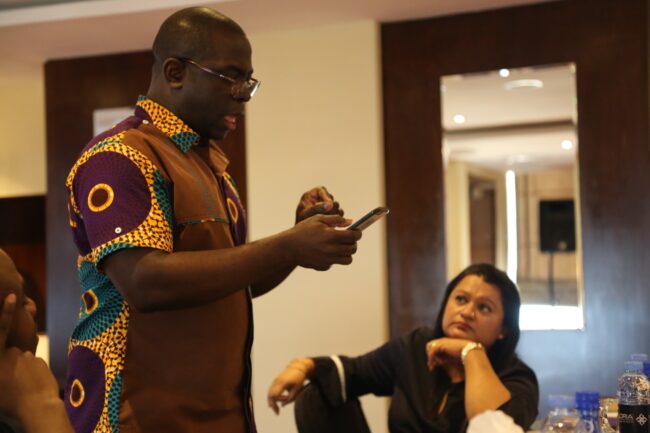
Balanced Leadership Diet
Pease porridge hot, pease porridge cold,
Pease porridge in the pot, nine days old;
Some like it hot, some like it cold,
Some like it in the pot, nine days old.
That ‘Pease Porridge’ Mother Goose nursery rhyme is a succinct summary of the biases, tendencies, idiosyncrasies and preferences we all have such that without a certain degree of intentionality we might never do one thing or the other at all because it simply isn’t my thing.
In my medical school days, I found it über interesting that each specialist professor would talk about their field with such passion and all-importance as if the whole body were an eye or liver or skin or heart or bones or whatever. No matter the medical condition, they would find a cause or effect related to their darling body part. In fact, we believed there were consultants who could literally hear and spot diagnose a heart murmur without a stethoscope just by walking into the consulting room!
In leader formation, I have also found that depending on the trainer or coach’s personal preferences, biases or sweet spot, they zoom in on one area (eg. character development or strategy or organizational culture) to the detriment of other equally important aspects of leader formation.
During my Master of Arts in Global Leadership at Fuller, I encountered a schema for the programme which I fell in love with. I have since adapted it as ‘7 Inputs & Outcomes of Leader Formation’ at YAW PERBI, providing a framework and basis, process and end product for our leader formation, whether via coaching or consulting, in our authoring of resources, and certainly in our speaking and training. Here it is (diagram below).
THE SEVEN LEADERSHIP FOOD GROUPS
Your body needs a nutritional balance of carbohydrates and proteins, fats/oils, minerals and vitamins. This is accomplished through food groups like grains, milk products, meats, fruits and vegetables. Similarly, your head, heart and hands require these seven ‘food groups’ to nourish and form the basis of leader development:
1. Classically Informed Practice: This is the origin and objective of leadership. Classical means ancient. Fuller’s original is Biblically-informed for obvious reasons but while that is true for us at YAW PERBI, we also include Ancient African, Asian and Greek/Latin literature (Aristotle, Socrates, Plato). The point of rooting leader formation in a meta narrative is that many people consider the whole area of leadership/leadership development as a creation of Western business schools and or even the modern American management industry but no. The art and science of leadership dates back 6,000 years in scripture, and with the likes of Akhenaten, King of Egypt (1380-1334 BC), Moses (1391-1271 BC), Lao Tzu (604-531), Cyrus the Great (600-530BC), Confucius (551-479 BC), Plato (427-347 B), Aristotle (384-322 BC) and Cicero (106-43 BC) throughout history.
2. Character Development: Constitutes the heart of leadership. At the end of the day, the heart of the matter is the matter of the heart. As I’ve heard it said time and again, charisma without character is a disaster waiting to happen. Invariably it does. That character is the bedrock of authentic and long-lasting leadership cannot be overemphasized.
3. Reflective Lifestyle: Herein lies the rhythm of leadership. This isn’t one of Fuller’s original six. I included it after a meeting with a group of senior leaders mentoring emerging leaders in Africa. Dr. Joshua Bogunjoku, my senior medical colleague and big brother who is the international director for SIM really passionately brought the necessity for stillness, silence, introspection and such to the fore to which I agreed and couched this indispensable ingredient.
4. Missional Community: This is the goal of leadership. Leadership is about serving and influencing a group of people (community) towards a certain noble purpose (cause). That cause or mission, according to my worldview, is a subset of a meta narrative known as the missio Dei that must ultimately bring glory to the God of the universe, benefit creation (people being chief among creation) and vanquish evil. Without a flourishing community on this vital three-fold mission, what the heck is leadership for?
5. Global Diversity: It goes without saying that we live in a global village, made even tighter still by the meta internet connectivity in this Covid-19 era. Not even spatial distancing can change the closeness. It is not uncommon for leaders today to have team members strewn across different timezones and having worldview, cultural beliefs and ethnic values that are very different. Global diversity is the context of leadership today.
6. Lifelong Learning in a Diverse Community: Herein lies the continuing development of leadership. As you already know, the present continues learning of a leader gives them the right and means to keep leading. The day we stop learning, we stop leading. Lifelong learning is catalyzed in diverse community, physical or virtual.
7. Organizational Dynamics: This is how leadership is implemented. I once met a former Fortune 500 company CEO near Chicago who described companies as ‘a necessary evil.’ At the end of the day, as long as two or more people come together, we need some sort of ‘organization’ to make things happen. It’s wonderful to have a great heart, but without the cutting edge knowledge and skillful hands to steer organizations with all their dynamics, these great ideas and causes won’t last very long.
CONCLUSION
For the last decade I have believed in and practiced going deep with leaders rather than merely going wide (mass production). I believe in Maxwell’s Law of Process, that leadership is built daily; not in day. Consequently, whoever walks long enough with us at YAW PERBI will invariably realize that they have been well-fed and well-formed holistically, with each of the above seven leadership food groups amply supplied, digested and fleshed out.
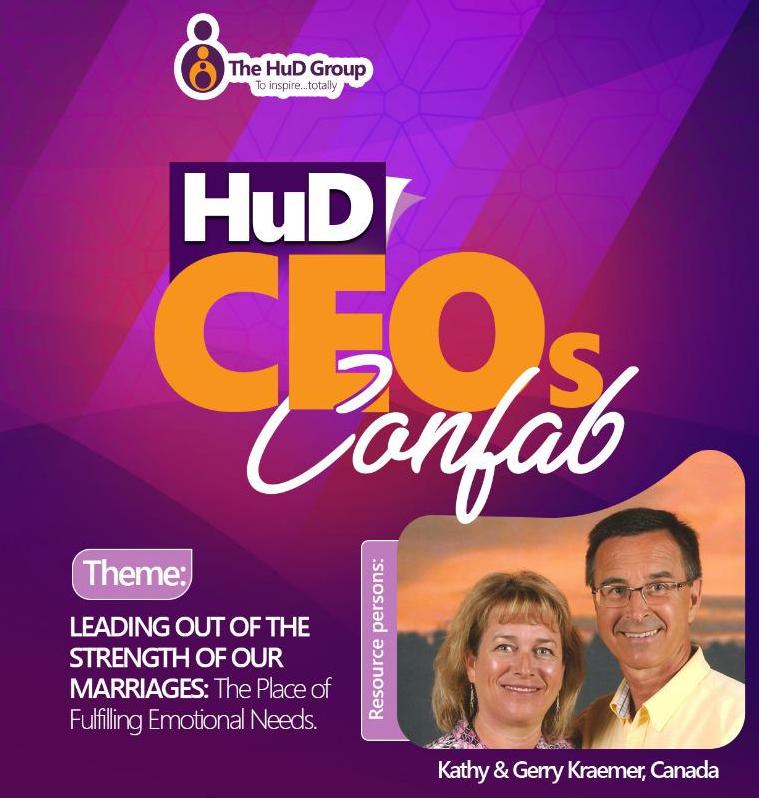
A Global Gathering: the blessing in the curse.
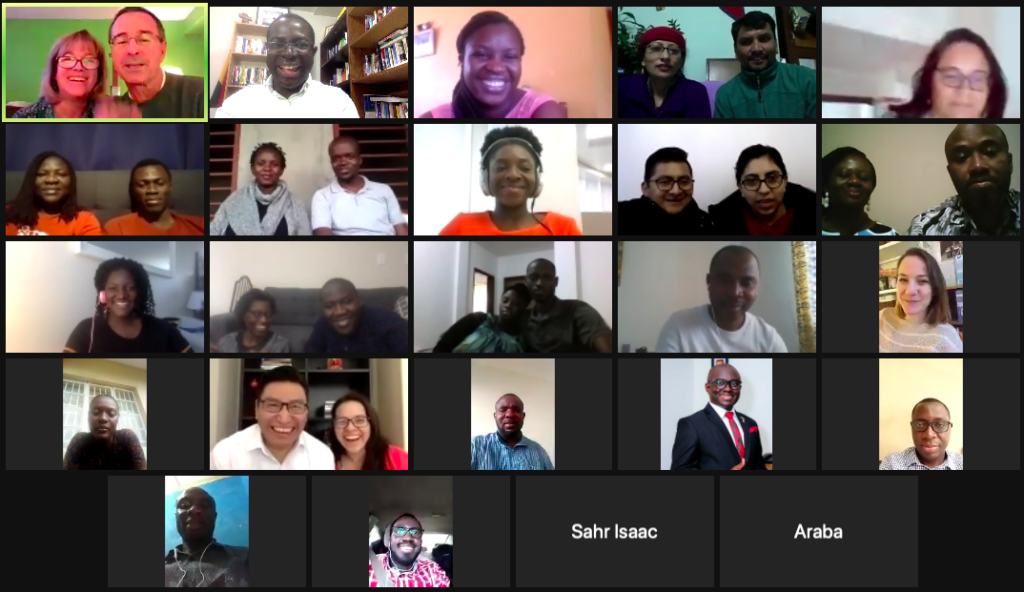
Leaders from over a dozen countries on all six continents gathering online for an annual CEOs Confab
As you already might know I am the Global CEO of The HuD Group, a faith-based leader development organization that originated from Ghana but now has presence in over 20 countries of the world, on all six continents.
For the last four years, every November we have hosted a HuD CEOs Confab. In 2016 we had two separate CEO gatherings in Accra, Ghana and Montreal, Canada. This was followed by the 2017 Confab in Alexandria and Cairo in Egypt. In 2018 we were in Dubai. Last year, 2019, we met in Abidjan and Bouake, in the Francophone West African nation of La Cote d’Ivoire. In 2020 we had planned a special Confab with our spouses and were supposed to be in Israel but here we are, thanks to COVID-19!
Today was Day 1 of our annual Confab. We met on Zoom. The blessing of that though is that nearly EVERYONE was able to show up (with most spouses present) because there was no hustle getting time off regular work, no financial or ticketing challenges and above all no visa headaches!
Thanks to modern technology, amidst a global pandemic we joined the call from eastern and western Canada, USA, Nepal, Switzerland, Uganda, Ghana, Mexico, Germany, The Gambia, Cote d’Ivoire, Sierra Leone, Kenya, Guatemala, Somalia and Australia. A few of us should join from Nigeria, Liberia, Pakistan and Colombia in the coming days, DV.
Our theme is “LEADING OUT OF THE STRENGTH OF OUR MARRIAGES: The Place of Fulfilling Emotional Needs” and we have an AMAZING Canadian couple to lead us into that.
THE KRAEMER ICING ON THE CAKE
Gerry and Kathy both grew up in Western Canada where they committed their lives to Jesus Christ as Saviour and Lord during their adolescent years. Immediately after marrying in 1981, God called them in a clear and dramatic fashion to serve Him in the French-speaking province of Quebec, Canada. Ever since, they have been in full-time Christian ministry together, including five years with Campus Crusade for Christ (evangelism and discipleship), 22 years of pastoral ministry and six years as the chaplain of the Montreal Alouettes professional football team.
In 2007, “the gates of hell” unleashed a serious of attacks on the Kraemer’s marriage and they plummeted to the brink of divorce. In the summer of 2008, during a week of intensive counselling with Larry & Lorrie Russell at the SHM Retreat Center in Ontario, Canada, God completely healed, restored and transformed their marriage. Upon returning home, they immediately began to share the amazing story of the miracle of the “resurrection of their marriage” to individuals and groups in their entourage…and God used their story to touch, encourage and heal marriages around them.
The opportunities continued to increase so dramatically that they resigned from their pastoral position in the fall of 2010 in order to dedicate themselves to a full-time ministry of speaking (prevention) and counselling (crisis intervention) to help couples. Today, they speak and teach together at conferences, Bible Camps, retreats, banquets and Bible Schools in both English and French, sharing with thousands of people the tools that can help them experience a healthy and flourishing marriage. Their honesty, practicality and humor make them easy to listen to and the wisdom of their teaching is hard to forget.
Gerry and Kathy reside in Terrebonne, Quebec and they are the parents of three young adults: Timothy, Jessica and Rebecca. In their spare time they enjoy golf, tennis, traveling and spoiling their grandchildren both in Canada and the USA!
CONCLUSION
Wow! What a big blessing amidst the Covid curse. Oh! And today happens to be U.S. Thanksgiving. Happy Thanksgiving!

